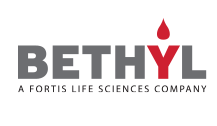Rabbit anti-Rictor IHC Antibody

Catalog #
Rictor
Human
IHC
PhenoImager™ HT
Rabbit
Polyclonal
Whole IgG
Between 1650 and C-term
IgG
Unconjugated
Antigen Affinity Purified
Product Details
Human
Mouse,
Dog,
Monkey
Human
2 - 8 °C
1 year from date of receipt
Rictor is a subunit of mTORC2, which regulates cell growth and survival in response to hormonal signals. mTORC2 is activated by growth factors, but, in contrast to mTORC1, seems to be nutrient-insensitive. mTORC2 seems to function upstream of Rho GTPases to regulate the actin cytoskeleton, probably by activating one or more Rho-type guanine nucleotide exchange factors. mTORC2 promotes the serum-induced formation of stress-fibers or F-actin. mTORC2 plays a critical role in AKT1 'Ser-473' phosphorylation, which may facilitate the phosphorylation of the activation loop of AKT1 on 'Thr-308' by PDK1 which is a prerequisite for full activation. mTORC2 regulates the phosphorylation of SGK1 at 'Ser-422'. mTORC2 also modulates the phosphorylation of PRKCA on 'Ser-657'. Plays an essential role in embryonic growth and development [taken from the Universal Protein Resource (UniProt) www.uniprot.org/uniprot/Q6R327].
Rapamycin-insensitive companion of mTOR
Alternate Names
AVO3; AVO3 homolog; hAVO3; PIA; pianissimo; rapamycin-insensitive companion of mTOR; TORC2-specific protein AVO3
Applications

